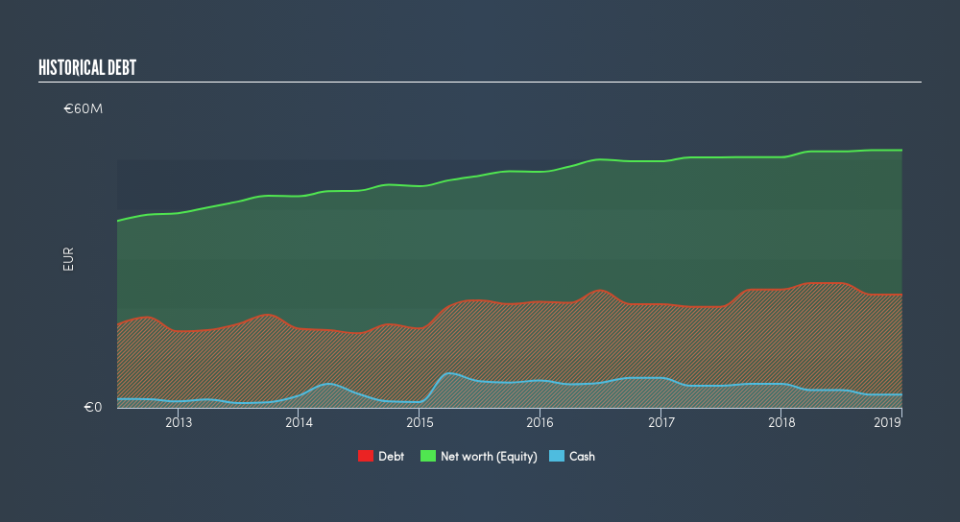Are Elton International Trading Company S.A.'s (ATH:ELTON) Interest Costs Too High?

Want to participate in a short research study? Help shape the future of investing tools and you could win a $250 gift card!
Elton International Trading Company S.A. (ATH:ELTON) is a small-cap stock with a market capitalization of €44m. While investors primarily focus on the growth potential and competitive landscape of the small-cap companies, they end up ignoring a key aspect, which could be the biggest threat to its existence: its financial health. Why is it important? Evaluating financial health as part of your investment thesis is vital, as mismanagement of capital can lead to bankruptcies, which occur at a higher rate for small-caps. The following basic checks can help you get a picture of the company's balance sheet strength. Nevertheless, potential investors would need to take a closer look, and I’d encourage you to dig deeper yourself into ELTON here.
Does ELTON Produce Much Cash Relative To Its Debt?
Over the past year, ELTON has maintained its debt levels at around €23m which accounts for long term debt. At this stable level of debt, the current cash and short-term investment levels stands at €2.6m to keep the business going. Additionally, ELTON has produced €1.2m in operating cash flow in the last twelve months, resulting in an operating cash to total debt ratio of 5.4%, indicating that ELTON’s operating cash is less than its debt.
Does ELTON’s liquid assets cover its short-term commitments?
At the current liabilities level of €31m, it appears that the company has maintained a safe level of current assets to meet its obligations, with the current ratio last standing at 2.31x. The current ratio is calculated by dividing current assets by current liabilities. Usually, for Trade Distributors companies, this is a suitable ratio as there's enough of a cash buffer without holding too much capital in low return investments.
Is ELTON’s debt level acceptable?
ELTON is a relatively highly levered company with a debt-to-equity of 44%. This is a bit unusual for a small-cap stock, since they generally have a harder time borrowing than large more established companies. We can test if ELTON’s debt levels are sustainable by measuring interest payments against earnings of a company. Ideally, earnings before interest and tax (EBIT) should cover net interest by at least three times. For ELTON, the ratio of 5.65x suggests that interest is appropriately covered, which means that debtors may be willing to loan the company more money, giving ELTON ample headroom to grow its debt facilities.
Next Steps:
Although ELTON’s debt level is towards the higher end of the spectrum, its cash flow coverage seems adequate to meet obligations which means its debt is being efficiently utilised. This may mean this is an optimal capital structure for the business, given that it is also meeting its short-term commitment. I admit this is a fairly basic analysis for ELTON's financial health. Other important fundamentals need to be considered alongside. I suggest you continue to research Elton International Trading to get a more holistic view of the small-cap by looking at:
Future Outlook: What are well-informed industry analysts predicting for ELTON’s future growth? Take a look at our free research report of analyst consensus for ELTON’s outlook.
Historical Performance: What has ELTON's returns been like over the past? Go into more detail in the past track record analysis and take a look at the free visual representations of our analysis for more clarity.
Other High-Performing Stocks: Are there other stocks that provide better prospects with proven track records? Explore our free list of these great stocks here.
We aim to bring you long-term focused research analysis driven by fundamental data. Note that our analysis may not factor in the latest price-sensitive company announcements or qualitative material.
If you spot an error that warrants correction, please contact the editor at editorial-team@simplywallst.com. This article by Simply Wall St is general in nature. It does not constitute a recommendation to buy or sell any stock, and does not take account of your objectives, or your financial situation. Simply Wall St has no position in the stocks mentioned. Thank you for reading.

